Camp Leakey and the Rimba Lodge
Everyone remembers where they were when Covid hit. In my case, I was in the forests of Borneo, the Indonesian section, known as Kalimantan. I’d wanted to go there since college, when I read Eric Hansen’s fascinating account, Stranger in the Forest: On Foot Across Borneo, detailing his adventures trekking through what was then one of the most wild, unreachable places in the world.
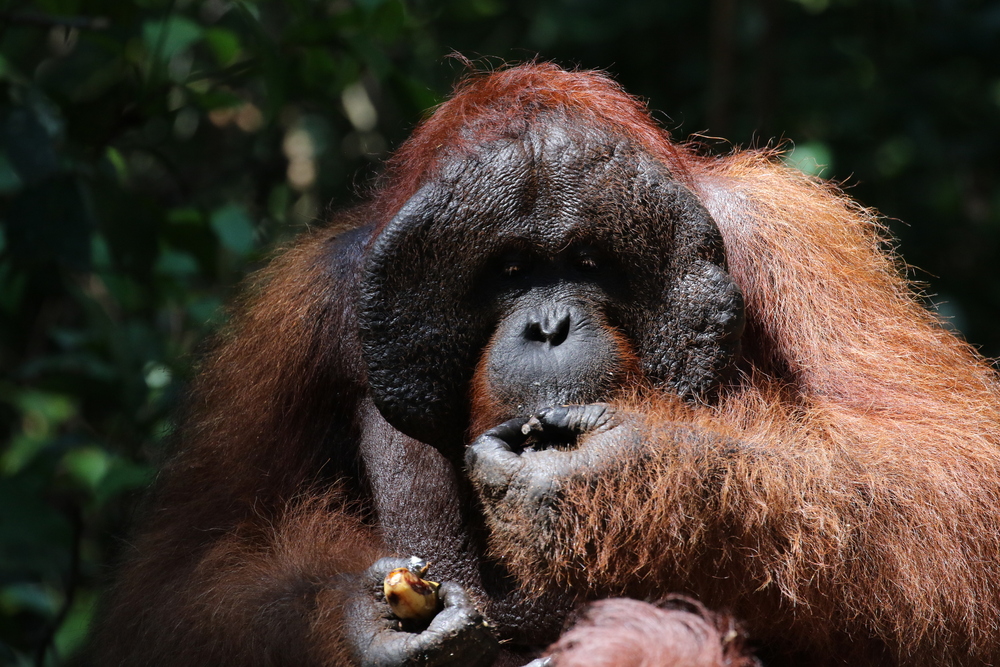
Sadly, palm oil production has changed that island irrevocably, and while cutting palm oil out of one’s diet entirely is almost impossible, as it’s found in nearly every prepared food and is being pushed as a healthy alternative to other fats and oils, even in so-called “natural” products, I cannot stomach what happens as they make a new palm plantation. The forest is burned, and with it, some of the most iconic, beautiful, human-like primates on the planet: Borneo’s orangutans. Those who
To see one side of a river as thick, dense forest and turn the other way and see row after row of palm desert makes my heart sick. The argument is that these farms offer income to people, but so does tourism, so does protection of the jungle and its incredible creatures.
Luckily for some of the orangutans, the Camp Leakey, deep in the heart of southern Borneo along the Sekonyer River, takes in orphaned orangutans or helps ones that are injured. It’s an incredible experience to visit it, and part of the experience is getting there: You fly into Iskandar Airport, which I flew to from Surabaya. Then a boat took me to the Rimba Lodge, a beautiful place that caters to orangutan viewers and other jungle goers.
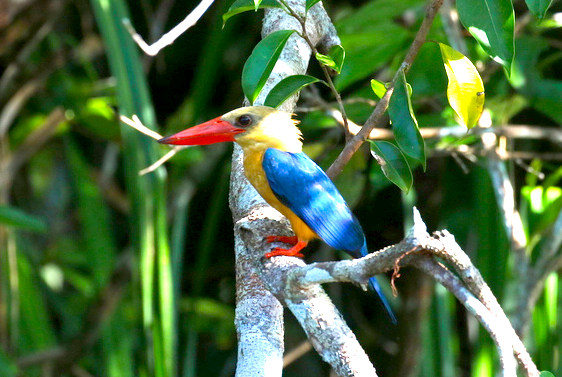
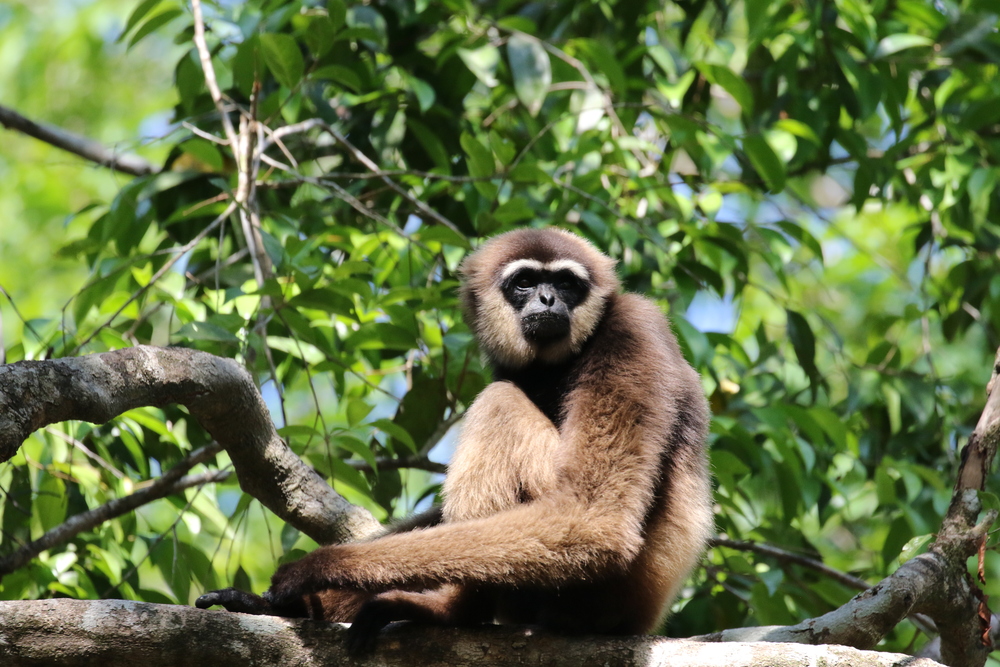
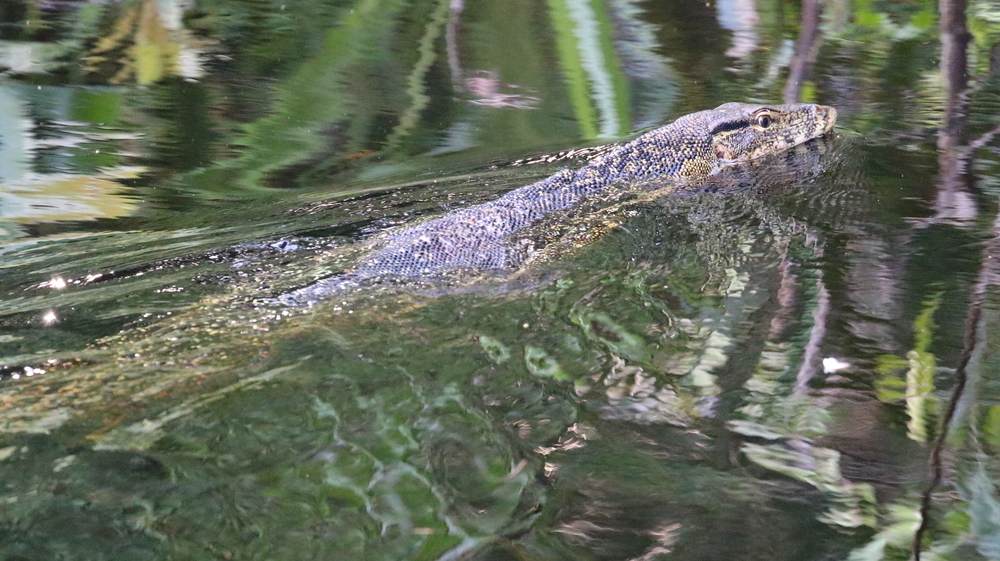
I spent the night there, and then took a klotok, a type of Indonesian riverboat, named after the sound the single cylinder engine makes: klotok, klotok, klotok….
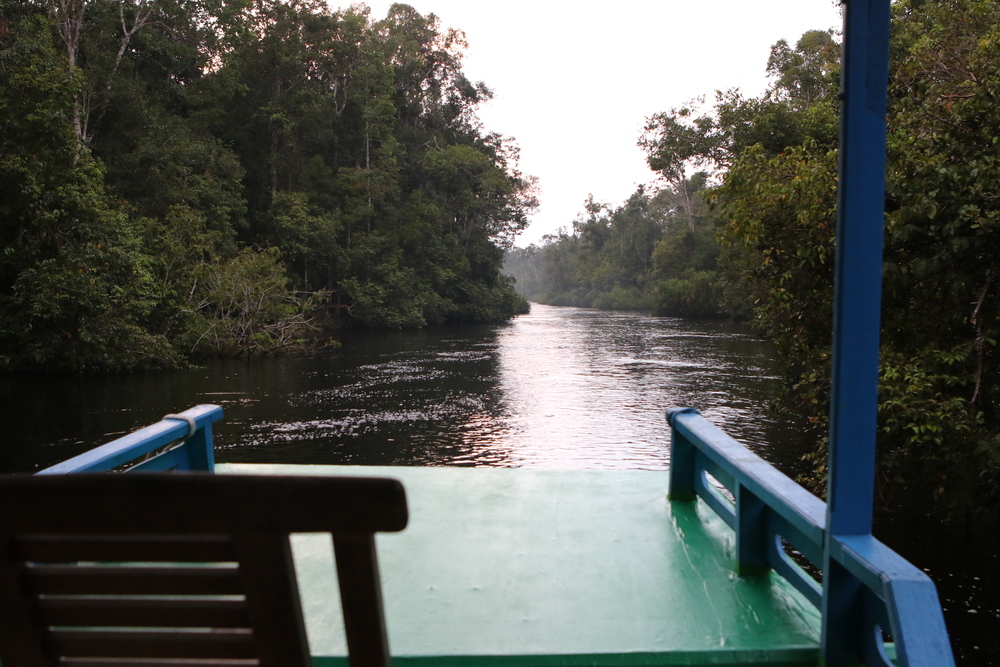
It took hours to arrive at Camp Leakey, but it was worth every moment. There were orangutan nests in the trees, monitor lizards, beautiful birds, gibbons, and Proboscis monkeys. Some people stay overnight on the boat, which I would have loved, but I was on a tight schedule and couldn’t spare the time.
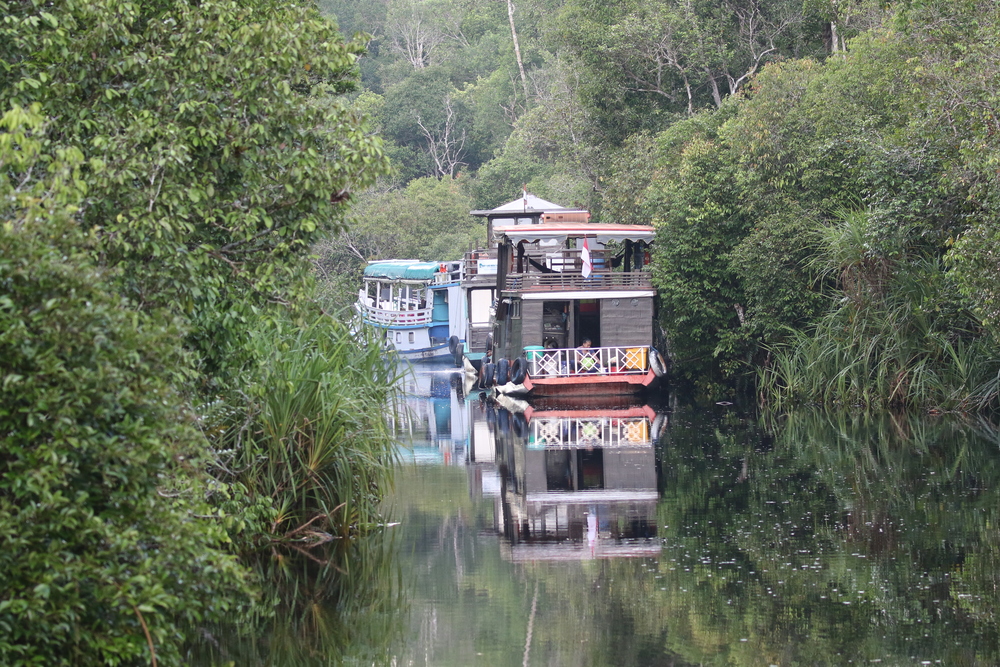
Arriving at Camp Leakey, one travels along a series of boardwalks to finally reach ground dry enough to walk on. From there, the orangutan feeding area is only a few more minutes away.
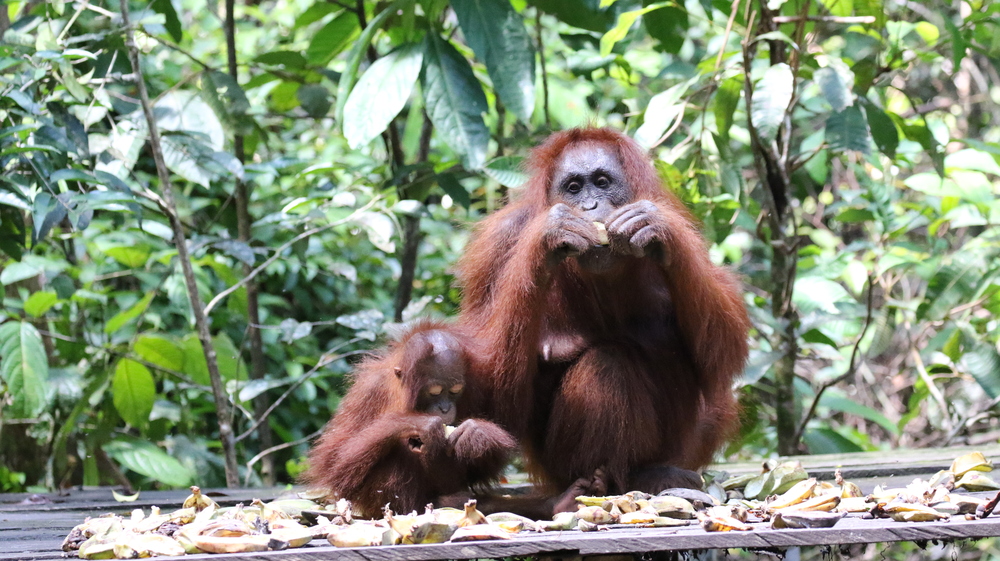
There was something comical, majestic, and deeply moving about watching these creatures, which on the one hand seemed so human, and yet were also so clearly not. In orangutan hierarchy, the males always dominate, and they get to have first pick at the food, taking as much time as they like, before the hungry others get a chance. As it turned out, one incredible male, who I believe was named Tom, arrived first and dominated the feeding platform, not only drinking the milk that was set out, but even playing with it — spitting it out on the ground, letting it drip and dribble out of his mouth — all while a number of hungry ones waited their turn. By the time he was done, there was hardly any milk left for the mother and her baby that had stayed up in the trees.
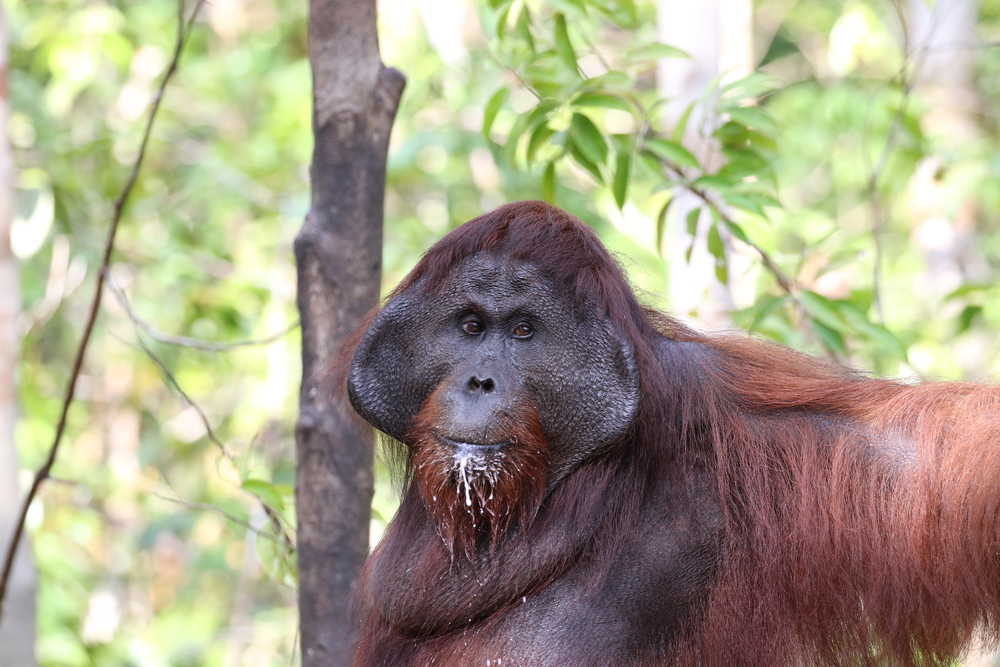
I’d planned to stay longer, but that night I got a message that they had closed schools in the US, and I decided to cut my trip short by a week and fly home sooner. Cathay Pacific gave me the option to reschedule for a Saturday or the earlier Wednesday to Hong Kong, and after hemming and hawing, I chose Wednesday to be on the safe side. I flew out of Indonesia on what ended up being the last Cathay Pacific flight out of Surabaya, as on Friday, a day before the Saturday flight was to have left, the Indonesian government closed the country to any travel, in or out. Had I not been on that Wednesday flight, I would have been stranded in Indonesia for months.
But the trip still had one more delight in store for me: As I waited for my boat ride back to the airport, a gray, rainy morning, one of the hotel staff came and excitedly told me the news: “There’s a wild orangutan on the roof!” she said. “You’ve got to come see it!”
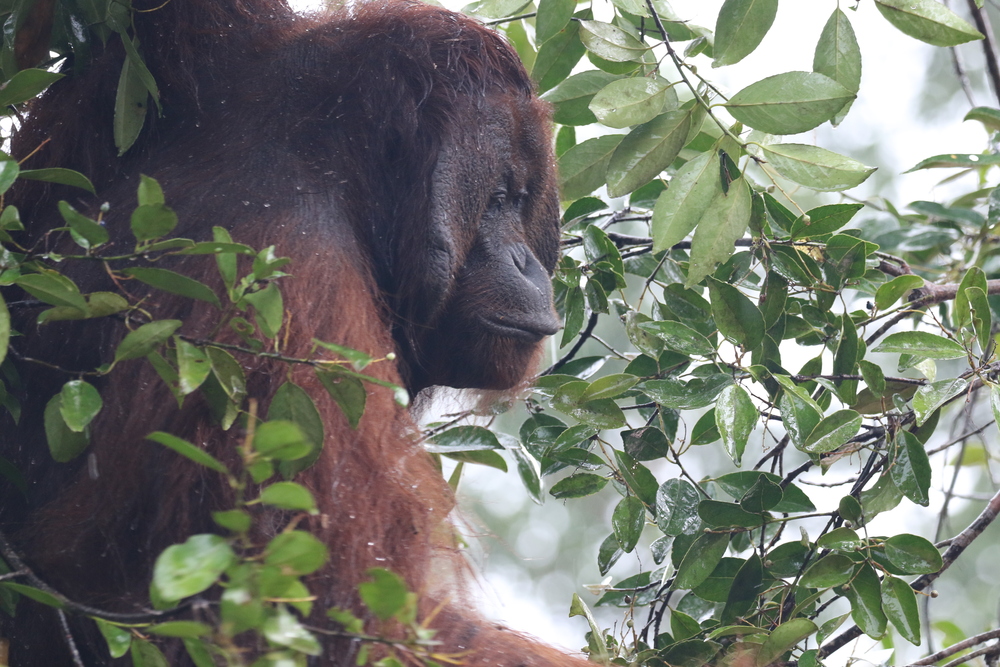
I grabbed my camera and ran to the spot. A beautiful male was in the trees right above the lodge, clambering around and seeming put off by the rain. Apparently orangutans hate rain, and will even break off a twig or something to hold above them as an umbrella, even if ineffectual. At one point the ape curled itself into a tight ball, as if truly hoping the rain would stop. It stayed around the lodge for more than an hour, walking at times on the gable, sometimes moving to the trees. It was such a thrill to see a truly wild one.
I left, still in disbelief at what was happening with Covid-19, was it really that serious to have closed American schools? When I arrived in Hong Kong, the usually busy airport was a ghost town. I was the sole person to walk the security line, normally a 20 or 30 minute wait. Just me. They didn’t let me take photos but I wish I could have. It was such a surreal thing to be the only person in the security line.
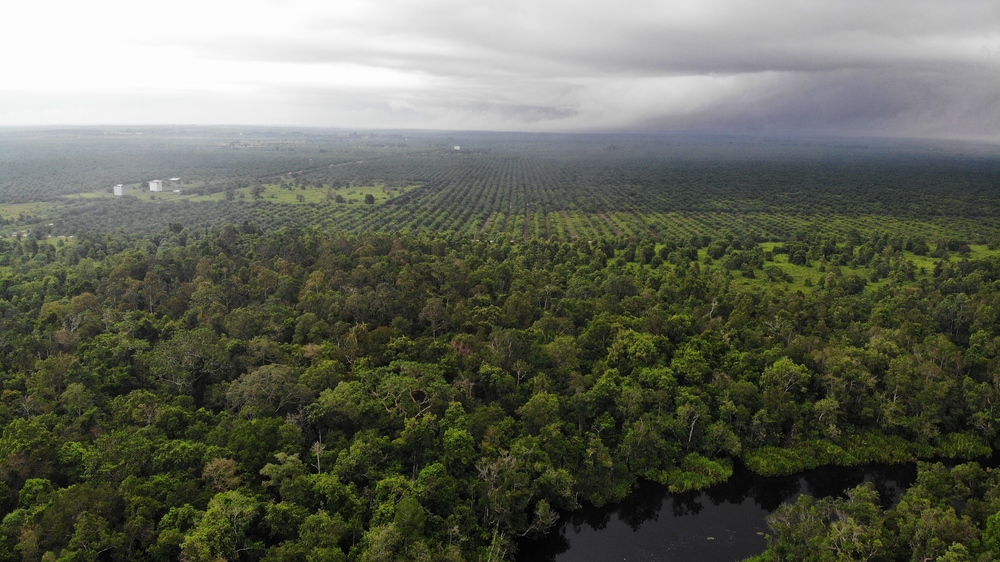
When the plane left, I looked out the window and saw the forest I’d just been in. And just over the river, row after row after row, stretching as far as I could see, of palm oil trees.
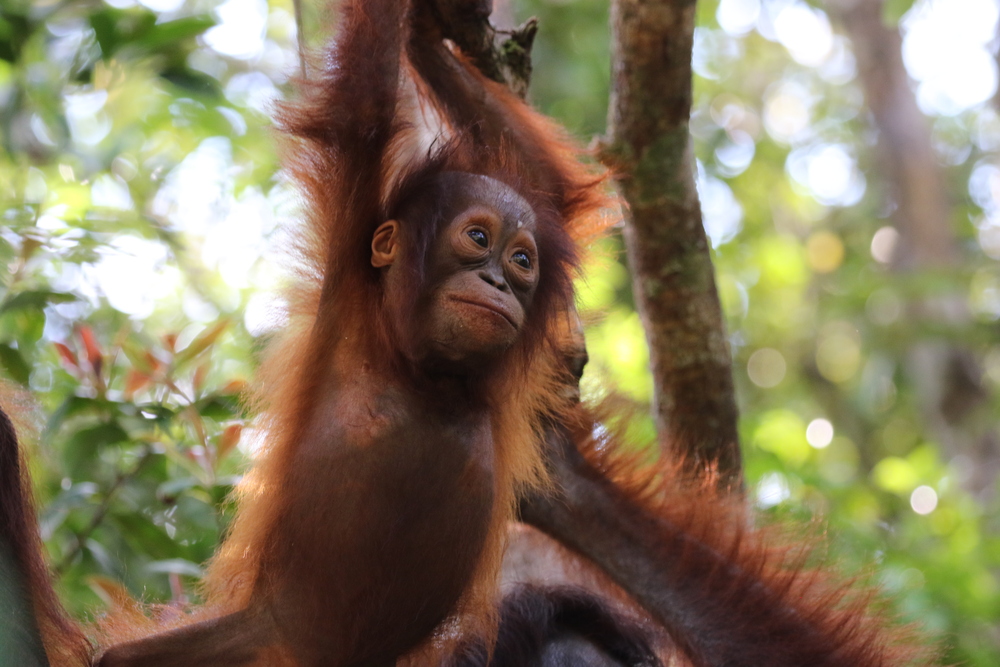
Leave a Reply